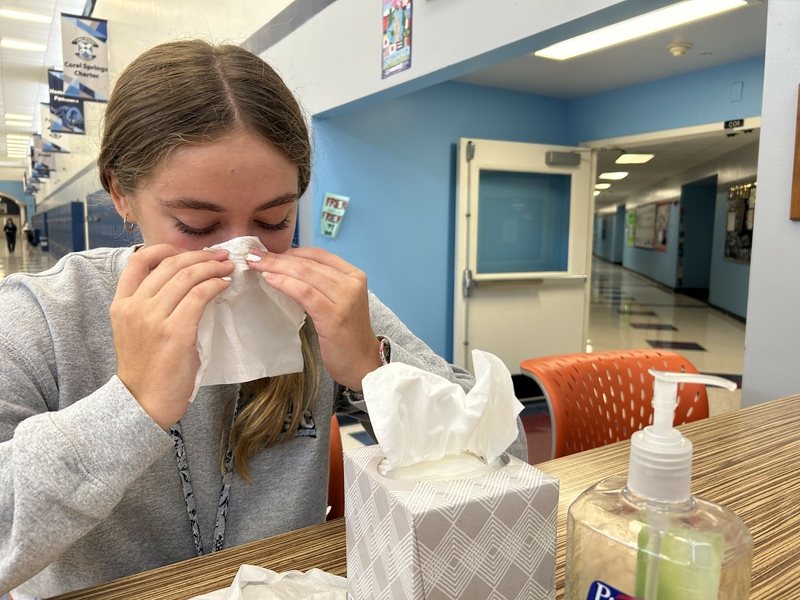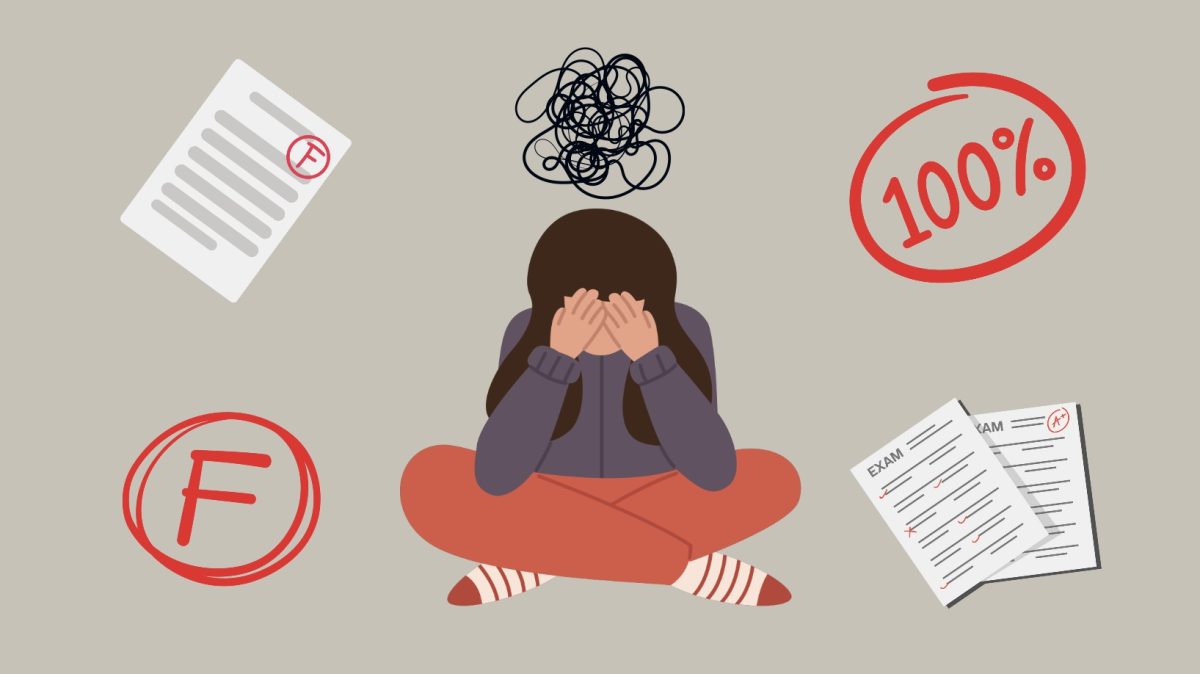Seemingly every quarter, students are catching an illness and panthers are unaware of what to do to prevent these plagues. The sound of sniffling students infecting the classrooms is something we all know too well, and have become accustomed to.
How to Detect Illnesses
“Lots of runny noses, sneezing, coughing, headaches, and stomachaches…” Nurse Mary Szoke said. These are all key signs that you really should be staying home, especially if the symptoms are severe. It would benefit the population of the school, as teachers do not have to move around testing or assignments when only 8 students are showing up to participate.
How to be Proactive
Waking up in the morning to a sore throat and sniffly sinuses, while continuing to get ready for the day is something we are all guilty of doing. This is the first step in the wrong direction to stop the spread of a virus.
“Making sure that we’re not in eachothers faces,” Nurse Szoke said. “Especially when we know we have a runny nose or a cold.” This is one effective way to prevent the escalation of sickness. Freshman Morgan Patrick agrees, mentioning that when she is feeling a bit under the weather, she ensures she is careful and takes precautions to prevent spreading.
Something as simple as having poor hygiene habits is another factor for the growing number of colds roaming our halls. Nurse Szoke also mentions the importance of handwashing and not touching our own faces without washing our hands first.
According to The Centers for Disease Control and Prevention (CDC), “Handwashing with soap removes germs from hands. This helps prevent infections because germs from unwashed hands can be transferred to other objects…” As we all know, we are constantly touching items such as desks, pencils, and handles which are common breeding grounds for illnesses never washed off of one’s hands.
In terms of vitamins and medicine that you should be taking, contact your physician. Nurses are not allowed to prescribe medication, especially to minors, so if you are needing something at school, contact your parents as they have the best plan for you,
What might be causing the spread?
Overall, the underlying cause for the mass spread of sickness in our school falls on students coming to school for fear of missing work and not being excused, especially with the new attendance policy.
“It could be hard for some kids to get to the doctor. It may not be accessible for them,” freshman Morgan Patrick said. If a student is sick for more than 5 days, they may be afraid of punishment and come to school, continuing the spread.
To parents, if you notice your kid having symptoms of illnesses and being under the weather, it’s best for the health of the school’s population for your kid to stay home. You would never want to be the cause of another student’s well-being being diminished.








